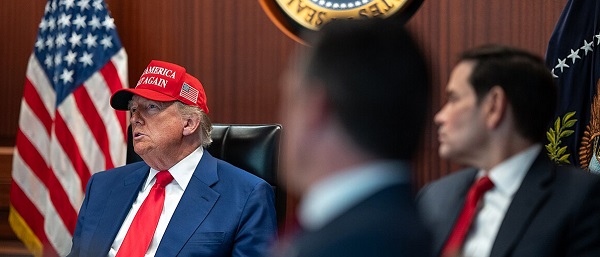Uncategorized
EU set to endorse Brexit deal but hard work lies ahead
BRUSSELS — In a bittersweet landmark, European Union leaders gathered Sunday to seal an agreement on Britain’s departure next year — the first time a member country will have left the 28-nation bloc.
At a summit in Brussels, the leaders were due to endorse a withdrawal agreement that would settle Britain’s divorce bill, protect the rights of U.K. and EU citizens hit by Brexit and keep the Irish border open. They will also rubber-stamp a 26-page document laying out their aims for future relations after Britain leaves at midnight Brussels time on March 29.
British Prime Minister Theresa May hailed the deal as the start of a new chapter for Britain, but European Commission President Jean-Claude Juncker said the U.K.’s departure was a tragedy.
“It’s a sad day,” Juncker said as he arrived.
He told reporters that deal was “the best possible,” but the summit “is neither a time of jubilation nor of celebration. It’s a sad moment, and it’s a tragedy.”
EU chief negotiator Michel Barnier said now that the first phase was done, Britain and the EU needed to work for “an ambitious and unprecedented partnership.”
“Now is the time for everybody to take their responsibility — everybody,” he said.
Dutch Prime Minister Mark Rutte said the deal — the product of a year and a half of often grueling negotiations between Britain and the EU — was regrettable, but acceptable.
“I believe that nobody is winning. We are all losing because of the U.K. leaving,” Rutte said. “But given that context, this is a balanced outcome with no political winners.”
The last big obstacle to a deal was overcome on Saturday, when Spain lifted its objections over the disputed British territory of Gibraltar.
The deal must still be ratified by the European Parliament, something parliament President Antonio Tajani said was likely in January.
More dauntingly for May, it also needs approval from Britain’s Parliament.
May is under intense pressure from pro-Brexit and pro-EU British lawmakers, with large numbers on both sides of the debate opposing the divorce deal and threatening to vote it down when it comes to the House of Commons next month. Brexiteers think it will leave the U.K. tied too closely to EU rules, while pro-Europeans say it will erect new barriers between Britain and the bloc — its
May insists her deal delivers on the things that matter most to pro-Brexit voters — control of budgets, immigration policy and laws — while retaining close ties to the U.K.’s European
She plans to spend the next couple of weeks selling it to politicians and the British public before Parliament’s vote in December.
In a “letter to the nation” released Sunday, May said she would be “campaigning with my heart and soul to win that vote and to deliver this Brexit deal, for the good of our United Kingdom and all of our people.”
“It will be a deal that is in our national interest – one that works for our whole country and all of our people, whether you voted ‘Leave’ or ‘Remain,'” she said.
She said Britain’s departure from the EU “must mark the point when we put aside the labels of ‘Leave’ and ‘Remain’ for good and we come together again as one people.”
“To do that we need to get on with Brexit now by getting behind this deal.”
___
See the AP’s Brexit coverage at: https://www.apnews.com/Brexit
Lorne Cook And Jill Lawless, The Associated Press
Uncategorized
Trump Admin Establishing Council To Make Buildings Beautiful Again


From the Daily Caller News Foundation
By Jason Hopkins
The Trump administration is creating a first-of-its-kind task force aimed at ushering in a new “Golden Age” of beautiful infrastructure across the U.S.
The Department of Transportation (DOT) will announce the establishment of the Beautifying Transportation Infrastructure Council (BTIC) on Thursday, the Daily Caller News Foundation exclusively learned. The BTIC seeks to advise Transportation Secretary Sean Duffy on design and policy ideas for key infrastructure projects, including highways, bridges and transit hubs.
“What happened to our country’s proud tradition of building great, big, beautiful things?” Duffy said in a statement shared with the DCNF. “It’s time the design for America’s latest infrastructure projects reflects our nation’s strength, pride, and promise.”
“We’re engaging the best and brightest minds in architectural design and engineering to make beautiful structures that move you and bring about a new Golden Age of Transportation,” Duffy continued.
Mini scoop – here is the DOT’s rollout of its Beautifying Transportation Infrastructure Council, which will be tasked with making our buildings beautiful again. pic.twitter.com/
9iV2xSxdJM — Jason Hopkins (@jasonhopkinsdc) October 23, 2025
The DOT is encouraging nominations of the country’s best architects, urban planners, artists and others to serve on the council, according to the department. While ensuring that efficiency and safety remain a top priority, the BTIC will provide guidance on projects that “enhance” public areas and develop aesthetic performance metrics.
The new council aligns with an executive order signed by President Donald Trump in August 2025 regarding infrastructure. The “Making Federal Architecture Beautiful Again” order calls for federal public buildings in the country to “respect regional architectural heritage” and aims to prevent federal construction projects from using modernist and brutalist architecture styles, instead returning to a classical style.
“The Founders, in line with great societies before them, attached great importance to Federal civic architecture,” Trump’s order stated. “They wanted America’s public buildings to inspire the American people and encourage civic virtue.”
“President George Washington and Secretary of State Thomas Jefferson consciously modeled the most important buildings in Washington, D.C., on the classical architecture of ancient Athens and Rome,” the order continued. “Because of their proven ability to meet these requirements, classical and traditional architecture are preferred modes of architectural design.”
The DOT invested millions in major infrastructure projects since Trump’s return to the White House. Duffy announced in August a $43 million transformation initiative of the New York Penn Station in New York City and in September unveiledmajor progress in the rehabilitation and modernization of Washington Union Station in Washington, D.C.
The BTIC will comprise up to 11 members who will serve two-year terms, with the chance to be reappointed, according to the DOT. The task force will meet biannually. The deadline for nominations will end Nov. 21.
Uncategorized
New report warns WHO health rules erode Canada’s democracy and Charter rights

The Justice Centre for Constitutional Freedoms has released a new report titled Canada’s Surrender of Sovereignty: New WHO health regulations undermine Canadian democracy and Charter freedoms. Authored by Nigel Hannaford, a veteran journalist and researcher, the report warns that Canada’s acceptance of the World Health Organization’s (WHO) revised International Health Regulations (IHR) represents a serious erosion of national independence and democratic accountability.
The IHR amendments, which took effect on September 19, 2025, authorize the WHO Director-General to declare global “health emergencies” that could require Canada to follow directives from bureaucrats in Geneva, bypassing the House of Commons and the will of Canadian voters.
The WHO regards these regulations as “binding,” despite having no ability or legal authority to impose such regulations. Even so, Canada is opting to accept the regulations as binding.
By accepting the WHO’s revised IHR, the report explains, Canada has relinquished its own control over future health crises and instead has agreed to let the WHO determine when a “pandemic emergency” exists and what Canada must do to respond to it, after which Canada must report back to the WHO.
In fact, under these International Health Regulations, the WHO could demand countries like Canada impose stringent freedom-violating health policies, such as lockdowns, vaccine mandates, or travel restrictions without debate, evidence review, or public accountability, the report explains.
Once the WHO declares a “Pandemic Emergency,” member states are obligated to implement such emergency measures “without delay” for a minimum of three months.
Importantly, following these WHO directives would undermine government accountability as politicians may hide behind international “commitments” to justify their actions as “simply following international rules,” the report warns.
Canada should instead withdraw from the revised IHR, following the example of countries like Germany, Austria, Italy, Czech Republic, and the United States. The report recommends continued international cooperation without surrendering control over domestic health policies.
Constitutional lawyer Allison Pejovic said, “[b]y treating WHO edicts as binding, the federal government has effectively placed Canadian sovereignty on loan to an unelected international body.”
“Such directives, if enforced, would likely violate Canadians’ Charter rights and freedoms,” she added.
Mr. Hannaford agreed, saying, “Canada’s health policies must be made in Canada. No free and democratic nation should outsource its emergency powers to unelected bureaucrats in Geneva.”
The Justice Centre urges Canadians to contact their Members of Parliament and demand they support withdrawing from the revised IHR to restore Canadian sovereignty and reject blind compliance with WHO directives.
-

 Business1 day ago
Business1 day agoTrump’s Tariffs Have Not Caused Economy To Collapse
-

 Daily Caller1 day ago
Daily Caller1 day agoTrump Reportedly Planning Ground Troops, Drone Strikes On Cartels In Mexico
-

 Daily Caller2 days ago
Daily Caller2 days agoNigeria Would Welcome US Intervention In Massacre Of Christians By Islamic Terror Groups
-

 Alberta1 day ago
Alberta1 day agoAlberta government’s plan will improve access to MRIs and CT scans
-

 Automotive2 days ago
Automotive2 days agoCanada’s EV experiment has FAILED
-

 Alberta2 days ago
Alberta2 days agoCanada’s heavy oil finds new fans as global demand rises
-

 Bruce Dowbiggin2 days ago
Bruce Dowbiggin2 days agoA Story So Good Not Even The Elbows Up Crew Could Ruin It
-

 Addictions2 days ago
Addictions2 days agoThe War on Commonsense Nicotine Regulation









